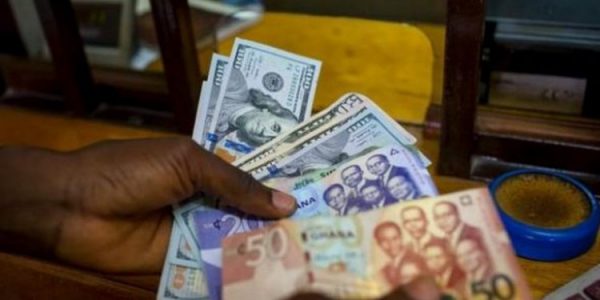
The Ghana cedi will hit ¢6.45 by the end of this year, according to projection by economic and finance think tank, Center for Economics Finance and Inequality Studies CEFIS’ Cedi Outlook Report.
The Center is also projecting that the Ghanaian local currency will by the middle of this year hit GH¢6.24.
According to the think tank, the projection is based on the fact that the expected rebound of the economy will not be strong enough to support the stability of the cedi for 2021.
It argued that “the immediate effect of the covid-19 pandemic will linger beyond 2021, which will also affect the cedi’s firm stability going forward” .
It also expressed worry that the cedi’s fortune will be affected by some financial commitments that government made in the run-up to the 2020 election, and that will be felt this year. This will consequently put some pressure on the Ghanaian local currency.
This excess liquidity without a corresponding output, will destroy most of the gains especially the exchange rate stability in 2020, made in the prior election year.”
Exports and revenue challenges
CEFIS in the report noted that exports will still struggle this year despite the expected opening up of economies this year.
Another area which it believes will impact negatively on the cedi is revenue shortfall and its effect on the budget deficit.
The think tank also believes that government’s finances might come under some pressure this year, as most debts are expected to mature.
Bank of Ghana and cedi performance
Read also: Meet Alfred Kwame Asiedu Walker, a shining star of Larteh-Akuapim
The Central Bank was commended for its Forex Forward Auction policy which has improved liquidity, and ultimately brought some relative stability to the Ghanaian local currency
We do acknowledged that the Bank of Ghana’s forex forward sales has gone a long to help stabilize the Ghana cedi from last year.”
Strategies in managing Exchange Rate Risk
CEFIS in its report proposed some internal strategies that can be adopted by businesses to manage the situation.
This includes :
Invoicing in home currency
In this strategy, Ghanaian business must keep invoices in cedi. In such situation, the currency risk is passed onto the customer or the supplier instead.
Companies that may opt for this strategy should however have a strong competitive strength and switching costs for the customers and suppliers.
Countertrade
It is fashioned out like a barter trade, where the trading parties exchange the equivalent amount of goods and services.
The disadvantage with countertrade is that management of the company will have to resolve the tax implication of the payment for goods and services in international trade.
External Strategies
These are strategies adopted after all internal means to manage the forex exposures have been exhausted.
Also, these strategies in many instances are expensive, since it may demand the setting up of a treasury function within the organization; hence, not recommended for smaller firms in Ghana.
In many instances, the external strategies are suited for banks, investment and fund management companies, pension funds with cross border investment, multinationals, and central banks.

